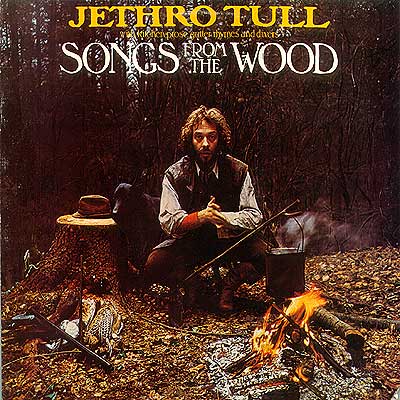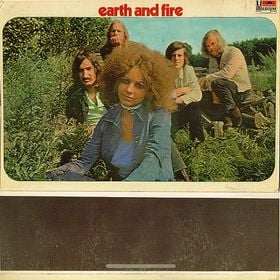When Baby Boomers were kids they were fed the futuristic Utopia spiel on a daily basis - that scientific advancements and industry would make the world just like the Jetsons. The World of Tomorrow would be full of jetpacks, space-age kittens in mini-skirts, and home appliances that would do all the work for you. Heck, you may even have a robot to do your bidding - the possibilities were endless!
By the end of the 1960's, it was readily apparent that this was all a bunch of B.S. The President had been shot in the head, thousands were being shipped from Vietnam in body bags, inner cities were turning into vast ghettos, the Manson Family were making headlines... and not a hovercraft or robot slave in sight! Is it any wonder the counterculture began rebelling against technological and industrial "progress"? They'd been promised futuristic bliss, but got war, a bad economy, and urban sprawl instead. When Mr. McGuire tells Benjamin to get into "plastics" in The Graduate, this line resonated with a young generation who'd been fed synthetic dreams since childhood, but were now seeing the folly in this philosophy.
Naturally, the rustic or bucolic movement was reflected in the music industry. If you were in a rock band or a singer/songwriter - odds were you had an album with lots of songs about going to the country, enjoying the simple life, and your album cover pictured you among lots of trees and tall grass. I don't mean these were necessarily environmentalst albums - they were much more than that. They were a rejection of scientific/industrial advancement. Just me and you and dog named Boo, livin' off the land, baby.
image source
Lyrics from the Jethro Tull song "Jack-In-The-Green":
From the U.K. sprang a whole folk rock movement which embraced the pre-Industrial Revolution days. These were songs for the maypole. These were songs about faeries and witches, of sailors and miners from long ago. Perhaps the greatest album produced during this period was Fairport Convention's Leige and Lief. With songs about Halloween, werefoxes, and faerie curses, it makes me want to go get a flagon of ale and dance around a maypole!It's no fun being Jack-In-The-Greenno place to dance, no time for song.
He wears the colours of the summer soldier
carries the green flag all the winter long.
Jack, do you never sleep
does the green still run deep in your heart?
Or will these changing times,
motorways, powerlines,
keep us apart?
Well, I don't think so
I saw some grass growing through the pavements today...
And this trend was not limited to lesser known bands (at least, they were lesser known in the States). For instance, Led Zeppelin was a big adherant to this movement - "Ramble On" and "Stairway to Heaven" reference Lord of the Rings and describe England's pastoral days with bucolic flair. Take another listen to their 4th album - "The Battle for Evermore" with its mandolin and vocalist Sandy Denny (from Fairport Convention), you can hardly tell it apart from a Fairport Convention, Steeleye Span or Pentangle track! The Kinks, The Incredible String Band and Jethro Tull also sung of a return to the simpler life. (Not surprisingly, the Stones wanted nothing to do with this stuff.)
In the U.S. it was less centered on a Tolkein-esque vision. Instead, bands like Crosby, Stills, Nash & Young, Creedence Clearwater Revival, Canned Heat, and The Allman Brothers took us back to the country. The whole Laurel Canyon crowd was singin' about the trees and getting away from the city. John Denver was ridiculed by both country stars and pop stars because he was a little bit of both, but his music was pure exultation towards nature. If you really think about it, the hippie culture really had its roots in a yearning to get the back-to-nature spiritual life of their ancestors.
But enough of the history lesson (you knew all this anyway, right?). Let me show you some examples of album covers demonstrating the bucolic movement. Get ready for lots of images of hippie folks amid lush greenery. Each person pictured on these album covers seems to say: "I'm all about bein' rustic. Check out all the trees, bushes and shit." Enjoy.
Caravan - If I Could Do It All Over Again, I'd Do It All Over You (1970)

Creedence Clearwater Revival - Creedence Clearwater Revival (1968)
Earth and Fire - Earth and Fire (1970)
Fat Mattress - Fat Mattress (1969)
Incredible String Band - Changing Horses (1969)

Joni Mitchell - For the Roses (1972)
Karen Beth - The Joys of Life (1968)
image source
Jericho - Jericho (1971)
The song "Goin' to the Country" is a perfect example of this genre. I highly recommend you visit The Rising Storm if you're interested in getting a taste of lesser known records of the nineteen sixties and seventies. Image and mp3 courtesy of this ultra cool blog of forgetten gems.
Ian Carr & Nucleus - Belladonna (1972)
Nost-algae has the record available for download. I did, and I'm actually listening to it as I type this post.
Ten Years After - A Space in Time (1971)
Wings - Wild Life (1971)
(a thanks to a cover art gallery at RYM which made finding examples easy)
Ummmm.... apparently, The Osmonds didn't get the memo.... (how embarassing)
The Osmonds - Crazy Horses (1972)
Agnetha Fältskog - Agnetha Fältskog (1968)
Sun Shade 'n Rain - Naturally (197-)
image source: bizarre records
Shilo - Where Is the Peace? (197-)
I could throw another 50 album covers on here, but I think you get the point. Nature rock was big. But like all trends, it soon faded away. The latter half of the 1970's became dominated by disco, punk and arena rock.... the polar opposite of the previous few years. Even bands like Jethro Tull who hung onto the rustic dream till the late 70's, soon gave way to slick electronic sounds.
Whether the hippies sold out, or this bucolic way of life was just another Utopian dream, not unlike the Jetsons World of Tomorrow they'd been sold as youngsters, is a matter of opinion. I'll keep mine to myself (for now).












.jpg)




